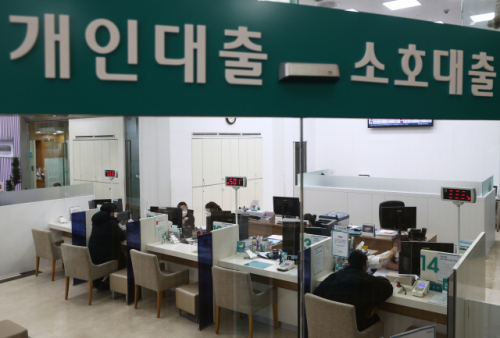 viewer
viewer
The financial authorities are planning to announce a plan to manage household debt, which is the core of the ‘40% total debt repayment ratio (DSR) per borrower’, as early as mid-next month. The 40% regulation is not retroactively applied to borrowers who have borrowed more than 40% of the DSR before the regulation was applied.
An official from the financial authorities said on the 28th, “The 40% DSR regulation only applies to borrowers who receive new loans after the time of application.” DSR is an index that calculates the principal and interest repayment burden for all loans of borrowers during loan review. It reflects the burden of principal and interest not only in mortgage loans, but also in all financial sector loans including credit and card loans.
Currently, each bank only needs to manage the average (40%), so borrowers are also making loans with a DSR of more than 40%. Bank customer A has a DSR of 20%, and B has a DSR of 60%.
The financial authorities are trying to change the average regulation for each bank to a 40% DSR for individual borrowers. It is based on the logic that loans must be made according to individual repayment capabilities. The principle is that the application of regulations is not applied retroactively, but also is applied in stages over a certain period of time.
An official from the financial authorities said, “We will not just announce and apply the loan regulation, we will do it step by step over several years. The financial authorities also decided to apply the regulation flexibly to the youth, even if it reflects the actual repayment ability of borrowers. For young people with low incomes, this is a method that reflects the expected future income when applying the loan regulation. It is also a target of promotion by sharing the principal of credit loans.
Currently, credit loans only pay interest every month until their maturity, but the financial authorities have decided to introduce a plan to repay the principal as well as interest. Financial authorities are considering imposing an amortization obligation on large credit loans that exceed borrowers’ income and exceed their ability to repay.
The issue of improving the requirements for bogeumjari loans is also included in the household debt management measures. Bogeumjari loans can be borrowed up to 300 million won per year if they meet the conditions of an annual income of 70 million won or less (unmarried, only the person, married couples combined) and a house price of 600 million won or less. However, due to the surge in real estate prices, there are steadily criticisms that it is difficult to find houses (less than 600 million won) for Bogeumjari loans in Seoul.
/ Reporter Kim Hyun-jin [email protected]
< 저작권자 ⓒ 서울경제, 무단 전재 및 재배포 금지 >
